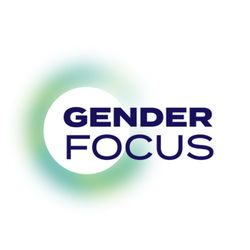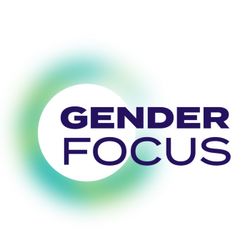Gender Focus
All Episodes

7. South Sudan's Political History and Conditions for Girls and Women
17:10||Season 1, Ep. 7Researchers in South Sudan are making breakthroughs with communities who are challenging violence against women and girls, in spite of a turbulent cultural and political backdrop. In this episode Dr Zara Martin looks at the unique history of South Sudan to better understand the cultural and social context that has created the challenges and opportunities of working in this context. She's joined by Paul Garang who teaches the political history of South Sudan and Bol Akok a researcher working for the Likikiri Collective.Gender Focus showcases tools for practitioners doing research into violence against women and girls, mental distress, climate, water and sanitation. Our contributors are working around the world to share and combine their insights to better inform research going forwards, and enact positive change.
6. Combining Research Studies for Action Against Violence
15:29||Season 1, Ep. 6Professor Mukdurat Bangpan and Professor Sandy Oliver explain how UCL are collaborating with partners in a systematic review process to layer up different studies and sets of information to challenge gender-based violence.The Youth Voices Project Systemic Review is creating valuable new insights and ideas for interventions across different contexts. They've been looking at how community engagement, the provision of safe spaces and legal protection could be implemented to support women in South Sudan.Sandy and Mukdurat explain how approaches to developing safety, economic independence and education amongst women can support opportunities for women.If you’d like to find out more about The Youth Voices project you can visit our website at genderfocus.org You can also follow us on Twitter @genderfocus and LinkedIn for our newsletter and details of upcoming webinars.
5. Protecting Girls and Women in Cultures Under Pressure
14:56||Season 1, Ep. 5In this episode of the Gender Focus podcast, the team from Plan International and Plan UK share their insights working in South Sudan during the Covid-19 crisis. They explain how existing gender issues hae been exacerbated by the pandemic, causing increased pressure upon the opportunities of girls and women. Observing that many projects were responding to sexual gender-based violence in the region, the team shifted their focus towards a range of prevention approaches.It's hoped the project will empower women and girls through shared experience.If you’d like to find out more about The Youth Voices project, the Likikri Collective and PLAN International’s work, you can visit our website at genderfocus.org You can also follow us on Twitter @genderfocus and LinkedIn for our newsletter and details of upcoming webinars.
4. Addressing Violence to Catalyse Empowerment Ft. FEDINA
24:39||Season 1, Ep. 4Since 1983, the non-profit NGO FEDINA has been working towards empowering marginalised groups by building confidence and co-creating tools against oppression. In this episode of the Gender Focus Podcast we hear how a network of grassroots groups and organisations collaborate on projects that challenge gender-based violence. FEDINA works across a range of under-represented groups in the Southern states of India as well as the union territory of Pondicherry. Their activities include making sure senior citizens have social security, to building solidarity and negotiating rights amongst workers, to championing women in leadership.You can find out more about FEDINA‘s approaches on our website at genderfocus.org You can also follow us on Twitter @genderfocus and LinkedIn for our newsletter and details of upcoming webinars.
3. Gender, Emotional Wellbeing and Water Access with Paul Hutchins and Abinet Kebede
15:39||Season 1, Ep. 3In this episode we hear from two practitioners on how they have come together to develop an entirely new tool. This methodology allows them to measure the link between the emotional and mental wellbeing of pastoral communities in Ethiopia, and their access to clean water.It’s given a unique insight into the emotional wellbeing of women and men respectively in relation to water access, and allowed an insight into the gendered division of water labour in some patriarchal communities.And it’s a tool that looks set to have far-reaching applications. Dr Paul Hutchins is a Lecturer in Water, Sanitation and Health in the School of Engineering at the University of LeedsAbinet Kebede is a Research and Policy Advisor working with IRC Ethiopia, a non-profit organisation focussing on safe water, sanitation and hygiene.
2. Displacement Narration with Sumeera Shrestha
15:39||Season 1, Ep. 2Sumeera Shrestha tells us about the Displacement Narration tool she’s using to explore the experiences of communities in Nepal. The region has suffered natural disasters in recent years, including an earthquake and two major floods prior to the Covid-19 pandemic. These events have interrupted the social fabric of women’s lives and in many cases cut them off from vital resources.She explains an innovative approach to gathering local voices which develops a trusted link between communities and policymakers.Sumeera is the Executive Director of the NGO Women for Human Rights. She works with women affected by conflict and she’s also the founder of GyanBodh Research and Development Services which provides support to women’s rights organisations.
1. Understanding women and violence in Nepal, with Bishnu Upreti
14:02||Season 1, Ep. 1In this episode we hear how the Nepal Centre for Contemporary Research collaborates with international institutions to influence public policy dialogue around gender-based violence and displacement.Bishnu Upreti is one of the founders of the NCCR. Until recently he was the Executive Director and today acts and adviser there.He talked to us about a few of the insights he’s recently gained on projects in Nepal.
loading...